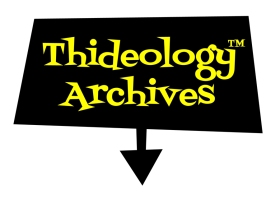Economics of Christianity (Part 3)
February 13, 2007 1 Comment
The Go(l)d Standard
(Continued from Part 2)
The concept of indirect exchange — money — became necessary because direct exchange is impractical. An example of a direct exchange would be a farmer taking his eggs to a clothing store and exchanging them for a shirt. It works fine as long as the store clerk needs eggs. But if the store clerk doesn’t need eggs and, instead, needs a new set of tires, then the farmer’s offer does him no good, unless the tire dealer needs eggs. Then the store clerk could take the eggs and exchange them for tires.
 The idea of indirect exchange establishes a fixed medium of exchange so that people may buy and sell for the things they need. So, money, then, is a commodity. It just needs to be more marketable than other commodities for ease of exchange. Historically gold has been the commodity used for exchange. For centuries money was tied to gold. Coins were made of it so that people actually exchanged gold for goods and services. Paper money was a certificate of ownership of actual gold held in reserve. This concept of tying money to gold is called the gold standard and it provided stability in the area of commerce.
The idea of indirect exchange establishes a fixed medium of exchange so that people may buy and sell for the things they need. So, money, then, is a commodity. It just needs to be more marketable than other commodities for ease of exchange. Historically gold has been the commodity used for exchange. For centuries money was tied to gold. Coins were made of it so that people actually exchanged gold for goods and services. Paper money was a certificate of ownership of actual gold held in reserve. This concept of tying money to gold is called the gold standard and it provided stability in the area of commerce.
However, one by one countries began to detach their money supply from gold and began to mint money by fiat — meaning they printed money pretty much out of thin air. The problem with fiat currency is that the more of it you print the more devalued all of it becomes. And since it is no longer is backed by a standard of currency — gold — it’s value is more likely to fluctuate and things like inflation became a real danger. Because of the danger of associated with fiat currency it becomes necessary for governments to manipulate interest rates, money supplies, etc. in order to maintain the stability of a currency. It’s a complicated balancing act with the potential of disastrous consequences all because the firm foundation once established was abandoned.
Many Christians find themselves performing a similar balancing act, all because they’ve abandoned the standard of faith as set forth in God’s Word. You see, the life of a Christian is to be governed by the principles in the Bible. It is the sole source of authority for a Christian. It’s a concept known as Sola Scriptura, which means “Scripture alone.”
But the typical modern Christian would rather live life by fiat — adhering to the ever-changing principles and values concocted by the culture of the day rather than in the inerrant Word of God. We would all do well to heed the words of the Apostle Paul in his letter to the Romans…
“I beseech you therefore, brethren, by the mercies of God, that ye present your bodies a living sacrifice, holy, acceptable unto God, [which is] your reasonable service. And be not conformed to this world: but be ye transformed by the renewing of your mind, that ye may prove what [is] that good, and acceptable, and perfect, will of God.” — Romans 12:1-2
 Of course heeding his words would require that we put some stock in the Bible in the first place. Maybe that’s where we need to start. The economies of the world would do well to return to a gold standard and we, as believers, would certainly do well to return to a “God Standard.”
Of course heeding his words would require that we put some stock in the Bible in the first place. Maybe that’s where we need to start. The economies of the world would do well to return to a gold standard and we, as believers, would certainly do well to return to a “God Standard.”
(To be continued in Part 4)







Pingback: Economics of Christianity (Part 2) « Thideology™